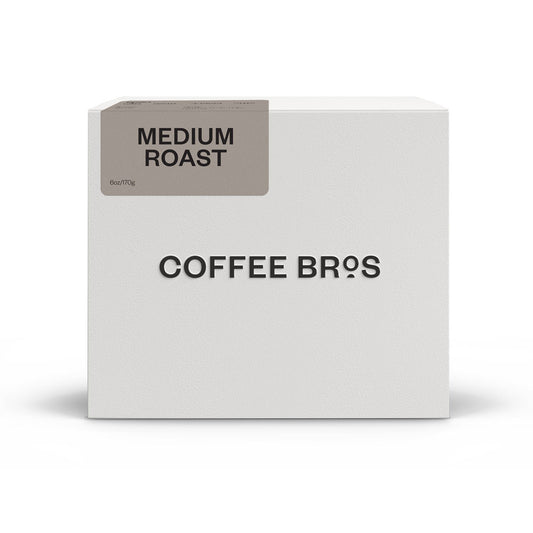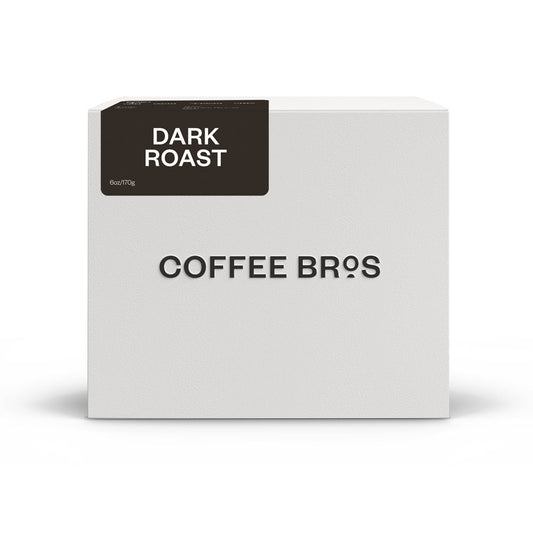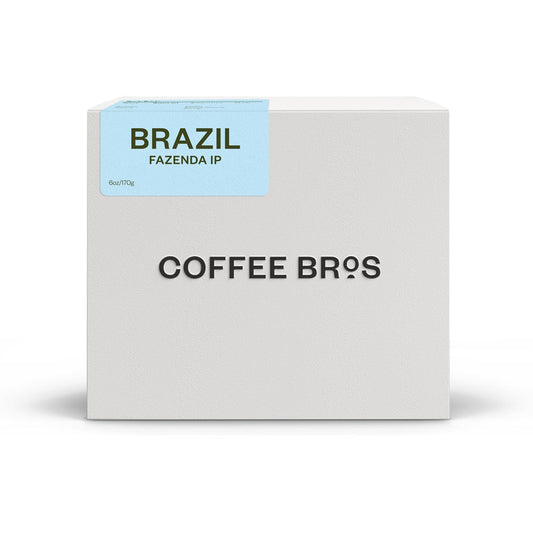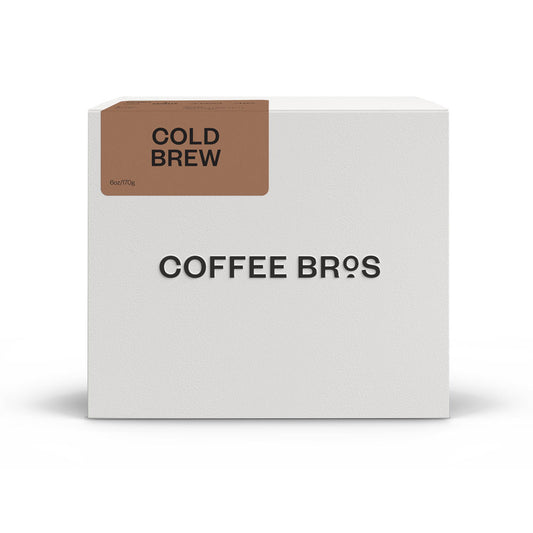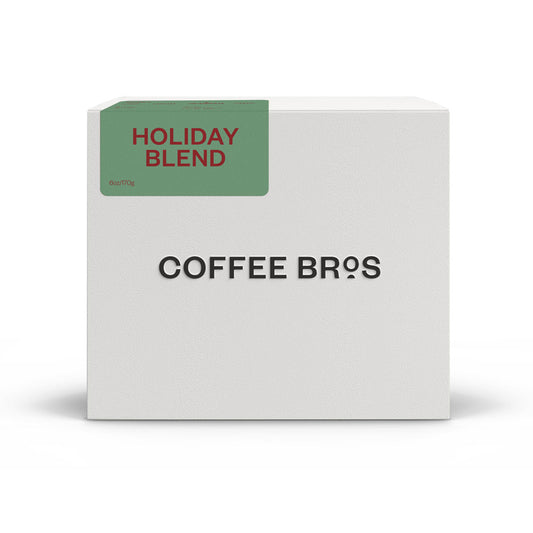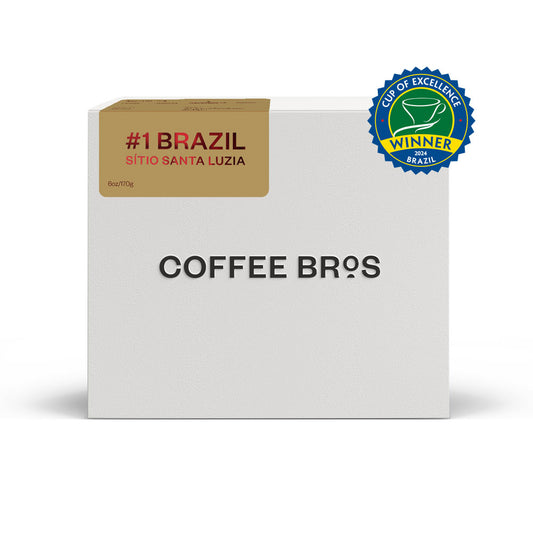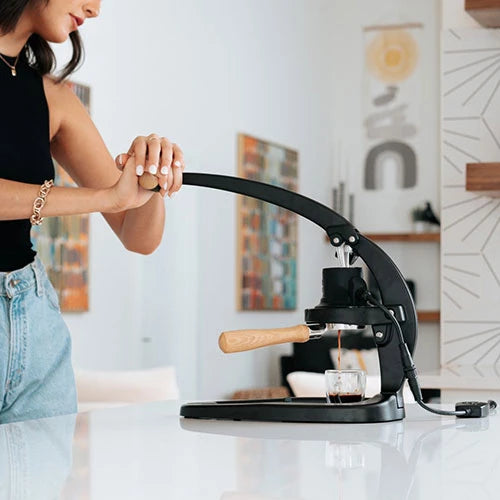Collection: Brazil
-
Medium Roast Coffee
For those who enjoy the traditional chocolate, nutty, but with a bit of red fruit sweetness
For those who enjoy the traditional chocolate, ...
Regular price From $9.79Regular priceUnit price / per -
Dark Roast Coffee
A traditional-tasting dark roast but roasted slightly lighter to better highlight terroir
A traditional-tasting dark roast but roasted sl...
Regular price From $9.79Regular priceUnit price / per -
Sold out
Brazil | Fazenda IP | Natural
A coffee with prominent cherry candy sweetness and rich cocoa notes
A coffee with prominent cherry candy sweetness ...
Regular price From $10.29Regular priceUnit price / per -
Cold Brew Coffee Blend
A blend of coffees from Ethiopia and Brazil for the perfect chocolatey, sweet cold brew
A blend of coffees from Ethiopia and Brazil for...
Regular price From $8.75Regular priceUnit price / per -
Holiday Blend Coffee | Costa Rica, Colombia | Natural
A seasonal holiday blend from all-star producers Las Lajas and La Esperanza
A seasonal holiday blend from all-star producer...
Regular price From $13.40Regular priceUnit price / per -
Brazil | #1 Cup of Excellence | Sítio Santa Luzia
The future of coffee: A coffee that represents the future of sustainable coffee production
The future of coffee: A coffee that represents ...
Regular price $79.99Regular priceUnit price / per
Looking for something extraordinary? We've got a selection of unique coffees from different roast types to origins. Use the selection below to find your match!
Collections
-
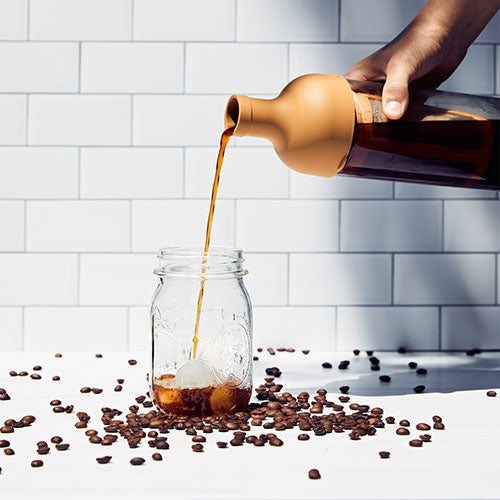
All Coffee
Experience the best specialty coffee with our selection of Signature Series, Single-origin,...
-
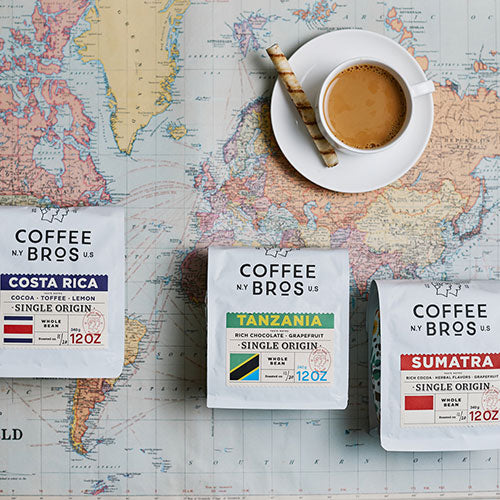
Single Origin
All of our single-origin coffees in this collection are 86+ point coffees...
-
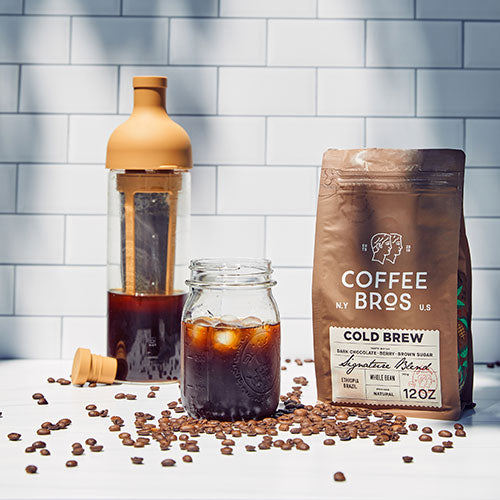
Signature Blends
Our Signature Blend coffees showcase unique flavor profiles that shine across any...
All About Coffee From Brazil
What coffee processing methods do they use in Brazil?
Brazil's coffee industry adopts efficient methods to maintain its large-scale production. Strip picking, either by hand or mechanically, is widely used to minimize labor costs and increase yield. The process involves collecting cherries by ripeness rather than cherry-by-cherry. Brazil's processing methods, such as Pulped Natural and Natural, are tailored to productivity, climate, and desired profile. The pulpy notes from these methods contribute to Brazil's classic coffee profile with chocolate, nut, and coffee-cherry notes. The Natural coffee Coffee Bros. sources from Brazil are specially prepared by picking ripe cherries and drying them on patios.
What are the common coffee varietals in Brazil?
In Brazil, some of the most common coffee varieties include Bourbon (including Yellow Bourbon), Catimor, Catuai, Caturra, Maragogype, and Typica. These varieties, along with other mutant-hybrids and cultivars, have originated in Brazil and have since spread to coffee-growing countries worldwide.
Where are the most common coffee growing regions in Brazil?
In Brazil, some of the most important coffee-growing regions include Bahia, Espírito Santo, Minas Gerais (which includes Carmo de Minas, Cerrado Mineiro, and Sul de Minas), Nambuco, Paraná, San Janeiro, and São Paulo (including Mogiana). These regions are known for their diverse landscapes and microclimates that support coffee production.
When does Brazil coffee harvest begin?
Brazil's coffee harvest period typically occurs between April and September, with some regions such as Espírito Santo harvesting between October and December.
- Choosing a selection results in a full page refresh.

